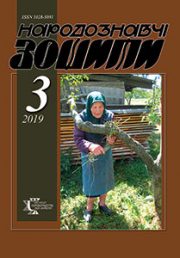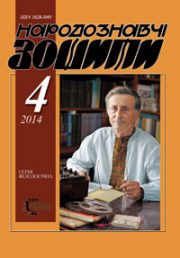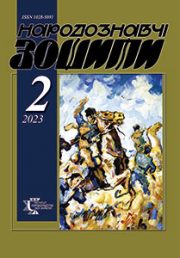The Ethnology Notebooks. 2023. № 6 (174), 1469—1511
UDK 355.4.01(470:477)”2014/2022″:323.173(477.7)
DOI https://doi.org/10.15407/nz2023.06.1469
KILAR Anastasia
- ORCID ID: https://orcid.org/0000-0003-3360-513X
- Postgraduate student of the Department of Historical Ethnology,
- Ethnology Institute оf the National Academy of Sciences of Ukraine,
- 15 Svobody ave., 79000, Lviv, Ukraine,
- Contacts: e-mail: anastasiakilar@gmail.com
Abstract. The south of Ukraine has become a desirable piece for Russia. Following the example of the occupation of Donetsk and Luhansk regions, the Kremlin authorities sought to make Odesa and the region the so-called «ONR». Since 2014, Russian invaders have been actively spreading the myth of Odesa as a region distinct from Ukraine. These separatist sentiments were picked up by a part of pro-Russian people in the country. They became a tool for the Kremlin’s aggressive plans. However, the Ukrainians of Odesa made it clear: «Odesa is Ukraine». The Russian authorities have repeatedly tried to use the thesis about the region’s multinationality in order to fuel separatist sentiments. Indeed, Odesa became multinational not without the help of the former Russian Empire and the Soviet Union. But the most interesting thing is that representatives of different nationalities: those who have Ukrainian citizenship and those who do not, stood up for the protection of Ukraine’s sovereignty in the fight against Russia. With the beginning of Russia’s large-scale war against Ukraine, the Russian occupiers again began to use the thesis of the multinationality of Odesa to justify their expansionist intentions. This determines the relevance of our topic. The purpose of the article is to highlight the stories of soldiers from Odesa, representatives of various nationalities. The object of the study is the Ukrainian soldiers who participated in the Russian-Ukrainian war from Odesa, and the subject is the idea of their role in the formation of the national identity of the region. The methodological basis of the research is an interdisciplinary approach, which significantly expands the boundaries of research perspectives. Oral history as a source and method plays a key role in the study of this issue. The territory of the study covers the Odesa region. Chronological boundaries of the study: 2014—2015 (the first years of the Russian-Ukrainian war). The source base of the work was published and unpublished oral history sources, field research materials.
Keywords: Russian-Ukrainian war, Odesa, soldiers, Armed Forces, experience.
Received 8.11.2023
REFERENCES
- Archive of the Institute of Ethnology of the National Academy of Sciences of Ukraine. F. 1. Op. 2. Unit coll. 829: Field ethnographic materials on the topic «Warrior in the ethno-cultural tradition of Ukrainians: social status and stereotypes of perception» were recorded by Kilar Anastasia Yuriivna on January 24—27, 2016 in the city of Chornomorsk, Odesa region [in Ukrainian].







